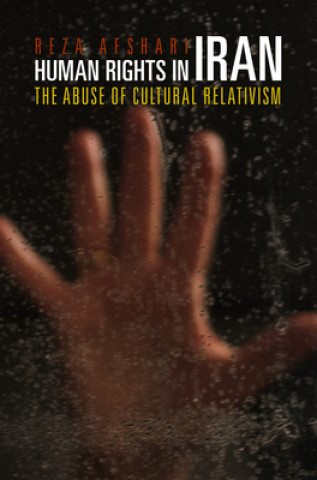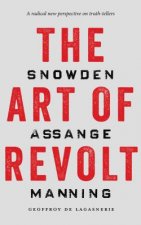
Kód: 04723510
Human Rights in Iran
Autor Reza Afshari
Selected by Choice magazine as an Outstanding Academic Title Are the principles set forth in the Universal Declaration of Human Rights truly universal? Or, as some have argued, are they derived exclusively from Western philosophi ... celý popis
- Jazyk:
 Angličtina
Angličtina - Vazba: Brožovaná
- Počet stran: 440
Nakladatelství: University of Pennsylvania Press, 2011
- Více informací o knize

1222 Kč

Skladem u dodavatele v malém množství
Odesíláme do 4 dnů
Potřebujete více kusů?Máte-li zájem o více kusů, prověřte, prosím, nejprve dostupnost titulu na naši zákaznické podpoře.
Přidat mezi přání
Mohlo by se vám také líbit
-

Kinnick Early US Family History
507 Kč -

Jennie Fowler Nighttime Prowler
255 Kč -

Exotic Birds: Color by Numbers
312 Kč -

Atomic Spectroscopy and Radiative Processes
1681 Kč -

Ich liebe mich, Meditationskarten
376 Kč -

Juegos reunidos
485 Kč -

Jaraneros y alborotadores : documentos sobre los sucesos estudiantiles de febrero de 1956 en la Universidad Complutense de Madrid
521 Kč
Dárkový poukaz: Radost zaručena
- Darujte poukaz v libovolné hodnotě a my se postaráme o zbytek.
- Poukaz se vztahuje na celou naši nabídku.
- Elektronický poukaz vytisknete z e-mailu a můžete ihned darovat.
- Platnost poukazu je 12 měsíců od data vystavení.
Více informací o knize Human Rights in Iran
Nákupem získáte 122 bodů
 Anotace knihy
Anotace knihy
Selected by Choice magazine as an Outstanding Academic Title Are the principles set forth in the Universal Declaration of Human Rights truly universal? Or, as some have argued, are they derived exclusively from Western philosophic traditions and therefore irrelevant to many non-Western cultures? Should a state's claims to indigenous traditions, and not international covenants, determine the scope of rights granted to its citizens? In his strong defense of the Declaration, Reza Afshari contends that the moral vision embodied in this and other agreements is a proper response to the abuses of the modern state. Asserting that the most serious violations of human rights by state rulers are motivated by political and economic factors rather than the purported concern for cultural authenticity, Afshari examines one particular state that has claimed cultural exception to the universality of human rights, the Islamic Republic of Iran. In his revealing case study, Afshari investigates how Islamic culture and Iranian politics since the fall of the Shah have affected human rights policy in that state. He exposes the human rights violations committed by ruling clerics in Iran since the Revolution, showing that Iran has behaved remarkably like other authoritarian governments in its human rights abuses. For more than two decades, Iran has systematically jailed, tortured, and executed dissidents without due process of law and assassinated political opponents outside state borders. Furthermore, like other oppressive states, Iran has regularly denied and countered the charges made by United Nations human rights monitors, defending its acts as authentic cultural practices. Throughout his study, Afshari addresses Iran's claims of cultural relativism, a controversial thesis in the intense ongoing debate over the universality of human rights. In prison memoirs he uncovers the actual human rights abuses committed by the Islamic Republic and the sociopolitical conditions that cause or permit them. Finally, Afshari turns to little-read UN reports that reveal that the dynamics of power between UN human rights monitors and Iranian leaders have proven ineffective at enforcing human rights policy in Iran. Critically analyzing the state's responses, Afshari shows that the Islamic Republic, like other oppressive states, has regularly denied and countered the charges made by UN human rights monitors, and when denials were patently implausible, it defended its acts as authentic cultural practices. This defense is equally unconvincing, since it lacked domestic cultural consensus.
 Parametry knihy
Parametry knihy
Zařazení knihy Knihy v angličtině Society & social sciences Politics & government Political control & freedoms
1222 Kč
- Plný název: Human Rights in Iran
- Autor: Reza Afshari
- Jazyk:
 Angličtina
Angličtina - Vazba: Brožovaná
- Počet stran: 440
- EAN: 9780812221398
- ISBN: 0812221397
- ID: 04723510
- Nakladatelství: University of Pennsylvania Press
- Hmotnost: 734 g
- Rozměry: 157 × 236 × 29 mm
- Datum vydání: 04. February 2011
Oblíbené z jiného soudku
-

The Gulag Archipelago
410 Kč -

On Palestine
343 Kč -

Propaganda
407 Kč -

Gift of Love
276 Kč -

In Order To Live
316 Kč -

Manufacturing Consent
357 Kč -

Understanding Power
430 Kč -

Anatomy of the State
306 Kč -

Long Walk To Freedom
410 Kč -

Half the Sky
319 Kč -

On Liberty
276 Kč -

Red Horizons
431 Kč -

How Propaganda Works
515 Kč -

Creating Capabilities
597 Kč -

I Have a Dream
397 Kč -

Fear No Evil
472 Kč -

In Harm's Way
1744 Kč -

Handbook of Tyranny
925 Kč -

Zinnophobia
1003 Kč -

Nothing To Envy
254 Kč -

The Gulag Archipelago, 1918-1956
443 Kč -

The Gulag Archipelago, 1918-1956
466 Kč -

Human Rights: A Very Short Introduction
254 Kč -

Inventing Human Rights
378 Kč -

New Jim Crow
303 Kč -

Political Philosophy: A Very Short Introduction
254 Kč -

Cultural Cold War
489 Kč -

Commissar Vanishes
684 Kč -

Rights of Man
196 Kč -

Anatomy of the State
202 Kč -

Constructing Cassandra
1040 Kč -

Gulag Archipelago
464 Kč -

International Law: A Very Short Introduction
254 Kč -

Anarcho-Fascism
471 Kč -

The Net Delusion
303 Kč -

Orwell on Truth
410 Kč -

Uncreative Writing
549 Kč -

Soul of America
596 Kč -

Parkland: Birth of a Movement
464 Kč -

Satow's Diplomatic Practice
2651 Kč -

Universal Human Rights in Theory and Practice
891 Kč -

Art of Revolt
528 Kč -

Legitimacy of International Human Rights Regimes
1257 Kč -

Domination and the Arts of Resistance
604 Kč -

Desert and the Sea
303 Kč -

Witness for the Defense
545 Kč -

Sociology of Human Rights
828 Kč -

Terrorism, Rights and the Rule of Law
1550 Kč -

Suffragettes
90 Kč
Osobní odběr Praha, Brno a 12903 dalších
Copyright ©2008-24 nejlevnejsi-knihy.cz Všechna práva vyhrazenaSoukromíCookies


 Vrácení do měsíce
Vrácení do měsíce 571 999 099 (8-15.30h)
571 999 099 (8-15.30h)